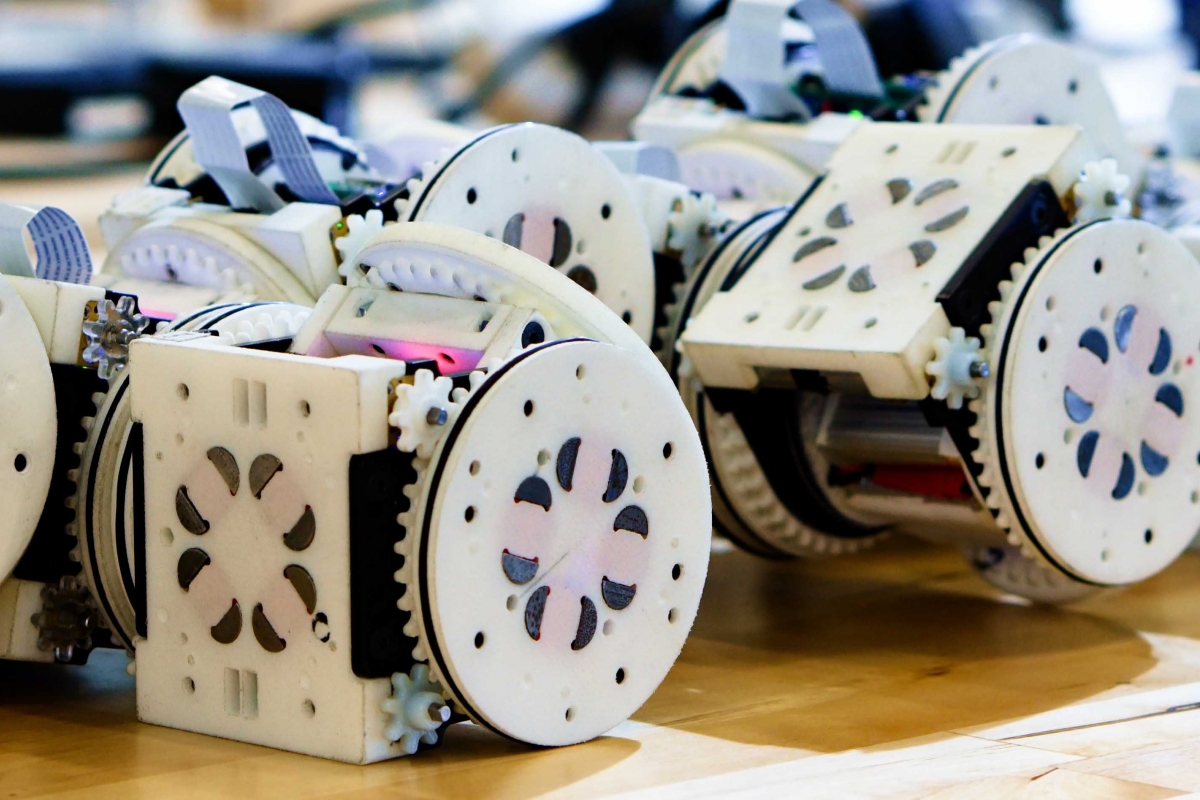
Given the exact parameters of the task at hand, a robot can assemble a car door or pack a box faster and more efficiently than any human, but such purpose-built machines aren’t good for much else.
With that in mind, the history of robotics research is marked by devising ways of giving machines more and more autonomy. To achieve that end, robots must be able to sense features of never-before-seen environments and know how to they can be interacted with.
ModLab, directed by professor Mark Yim and based at PERCH, is interested in the way robots can adapt to their surroundings and solve problems they weren’t explicitly programmed to be prepared for.
Its latest project, presented at last month’s International Conference on Robotics and Automation, is based on its SMORES-EP modular robots. Individually, each module can’t do much but roll around on wheels protruding from its cubic frame. But thanks to electro-permanent magnets on those wheels and a hinged face, modules can connect to one another and achieve more complex behaviors, pick up and integrate sensor-carrying components, and manipulate metal objects.
Read more at Penn Engineering.







